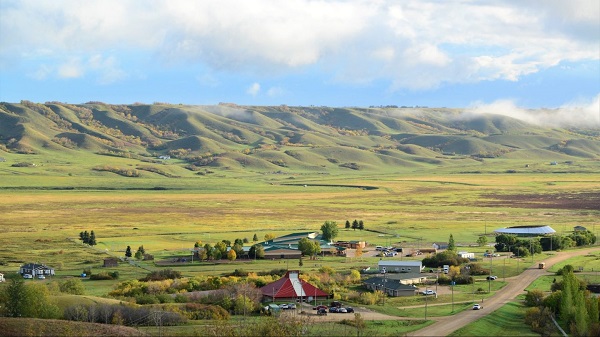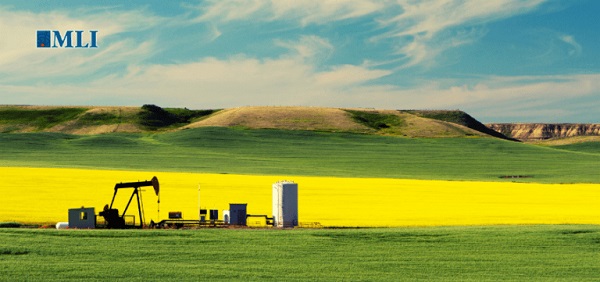Energy
Coastal GasLink fined again for sediment, erosion in pipeline work
Victoria – The company that is building a natural gas pipeline across northern British Columbia has been fined for a third time as a result of failure to comply with the requirements of its environmental assessment certificate.
The B.C. government issued a bulletin saying Coastal GasLink has been fined $213,600 for “continued deficiencies with erosion and sediment control measures.”
The bulletin issued Wednesday says recurring issues with erosion and sediment control have resulted in ongoing compliance and enforcement action, though more recent inspections have shown improvement.
The Environmental Assessment Office says more than 50 inspections have been done along the pipeline construction route since the project started in 2019, resulting in 37 warnings and two other financial penalties imposed last year: $72,500 in February and $170,100 in May.
The office says it entered into a compliance agreement with Coastal GasLink last July that takes a more proactive approach to erosion for about 100 kilometres of the 670-kilometre pipeline route where ground had yet to be broken.
The pipeline, which is in its final scheduled year of construction, is to connect natural gas facilities in northeastern B.C. to the LNG Canada terminal in Kitimat, on the northern coast.
Coastal GasLink says the penalty reflects concerns about erosion and sediment control from inspections by the Environmental Assessment Office in February 2022, and the determination is “a reminder of how far we’ve come in a year.”
“We continue to work closely with our regulators to look for ways where we can do better across our project, especially with erosion and sediment control,” the company said in a statement.
This report by The Canadian Press was first published Jan. 25, 2023.
Canadian Energy Centre
Saskatchewan Indigenous leaders urging need for access to natural gas

Piapot First Nation near Regina, Saskatchewan. Photo courtesy Piapot First Nation/Facebook
From the Canadian Energy Centre
By Cody Ciona and Deborah Jaremko
“Come to my nation and see how my people are living, and the struggles that they have day to day out here because of the high cost of energy, of electric heat and propane.”
Indigenous communities across Canada need access to natural gas to reduce energy poverty, says a new report by Energy for a Secure Future (ESF).
It’s a serious issue that needs to be addressed, say Indigenous community and business leaders in Saskatchewan.
“We’re here today to implore upon the federal government that we need the installation of natural gas and access to natural gas so that we can have safe and reliable service,” said Guy Lonechild, CEO of the Regina-based First Nations Power Authority, on a March 11 ESF webinar.
Last year, 20 Saskatchewan communities moved a resolution at the Assembly of First Nations’ annual general assembly calling on the federal government to “immediately enhance” First Nations financial supports for “more desirable energy security measures such as natural gas for home heating.”
“We’ve been calling it heat poverty because that’s what it really is…our families are finding that they have to either choose between buying groceries or heating their home,” Chief Christine Longjohn of Sturgeon Lake First Nation said in the ESF report.
“We should be able to live comfortably within our homes. We want to be just like every other homeowner that has that choice to be able to use natural gas.”
At least 333 First Nations communities across Canada are not connected to natural gas utilities, according to the Canada Energy Regulator (CER).
ESF says that while there are many federal programs that help cover the upfront costs of accessing electricity, primarily from renewable sources, there are no comparable ones to support natural gas access.
“Most Canadian and Indigenous communities support actions to address climate change. However, the policy priority of reducing fossil fuel use has had unintended consequences,” the ESF report said.
“Recent funding support has been directed not at improving reliability or affordability of the energy, but rather at sustainability.”
Natural gas costs less than half — or even a quarter — of electricity prices in Alberta, British Columbia, Ontario, Manitoba and Saskatchewan, according to CER data.
“Natural gas is something NRCan [Natural Resources Canada] will not fund. It’s not considered a renewable for them,” said Chief Mark Fox of the Piapot First Nation, located about 50 kilometres northeast of Regina.
“Come to my nation and see how my people are living, and the struggles that they have day to day out here because of the high cost of energy, of electric heat and propane.”
According to ESF, some Indigenous communities compare the challenge of natural gas access to the multiyear effort to raise awareness and, ultimately funding, to address poor water quality and access on reserve.
“Natural gas is the new water,” Lonechild said.
2025 Federal Election
MORE OF THE SAME: Mark Carney Admits He Will Not Repeal the Liberal’s Bill C-69 – The ‘No Pipelines’ Bill

From EnergyNow.Ca
Mark Carney on Tuesday explicitly stated the Liberals will not repeal their controversial Bill C-69, legislation that prevents new pipelines being built.
Carney has been campaigning on boosting the economy and the “need to act forcefully” against President Donald Trump and his tariffs by harvesting Canada’s wealth of natural resources — until it all fell flat around him when he admitted he actually had no intention to build pipelines at all.
When a reporter asked Carney how he plans to maintain Bill C-69 while simultaneously building infrastructure in Canada, Carney replied, “we do not plan to repeal Bill C-69.”
“What we have said, formally at a First Ministers meeting, is that we will move for projects of national interest, to remove duplication in terms of environmental assessments and other approvals, and we will follow the principle of ‘one project, one approval,’ to move forward from that.”
“What’s essential is to work at this time of crisis, to come together as a nation, all levels of government, to focus on those projects that are going to make material differences to our country, to Canadian workers, to our future.”
“The federal government is looking to lead with that, by saying we will accept provincial environmental assessments, for example clean energy projects or conventional energy projects, there’s many others that could be there.”
“We will always ensure these projects move forward in partnership with First Nations.”
Tory leader Pierre Poilievre was quick to respond to Carney’s admission that he has no intention to build new pipelines. “This Liberal law blocked BILLIONS of dollars of investment in oil & gas projects, pipelines, LNG plants, mines, and so much more — all of which would create powerful paychecks for our people,” wrote Poilievre on X.
“A fourth Liberal term will block even more and keep us reliant on the US,” he wrote, urging people to vote Conservative.
-

 2025 Federal Election2 days ago
2025 Federal Election2 days agoMark Carney refuses to clarify 2022 remarks accusing the Freedom Convoy of ‘sedition’
-

 Business2 days ago
Business2 days agoSaskatchewan becomes first Canadian province to fully eliminate carbon tax
-

 Automotive2 days ago
Automotive2 days agoElectric cars just another poor climate policy
-

 International2 days ago
International2 days agoTrump’s ‘Golden Dome’ defense shield must be built now, Lt. Gen. warns
-

 Alberta1 day ago
Alberta1 day agoOwner sells gas for 80 cents per litre to show Albertans how low prices ‘could’ be
-

 2025 Federal Election22 hours ago
2025 Federal Election22 hours agoMORE OF THE SAME: Mark Carney Admits He Will Not Repeal the Liberal’s Bill C-69 – The ‘No Pipelines’ Bill
-

 Break The Needle1 day ago
Break The Needle1 day agoWhy psychedelic therapy is stuck in the waiting room
-

 Energy2 days ago
Energy2 days agoWhy are Western Canadian oil prices so strong?




